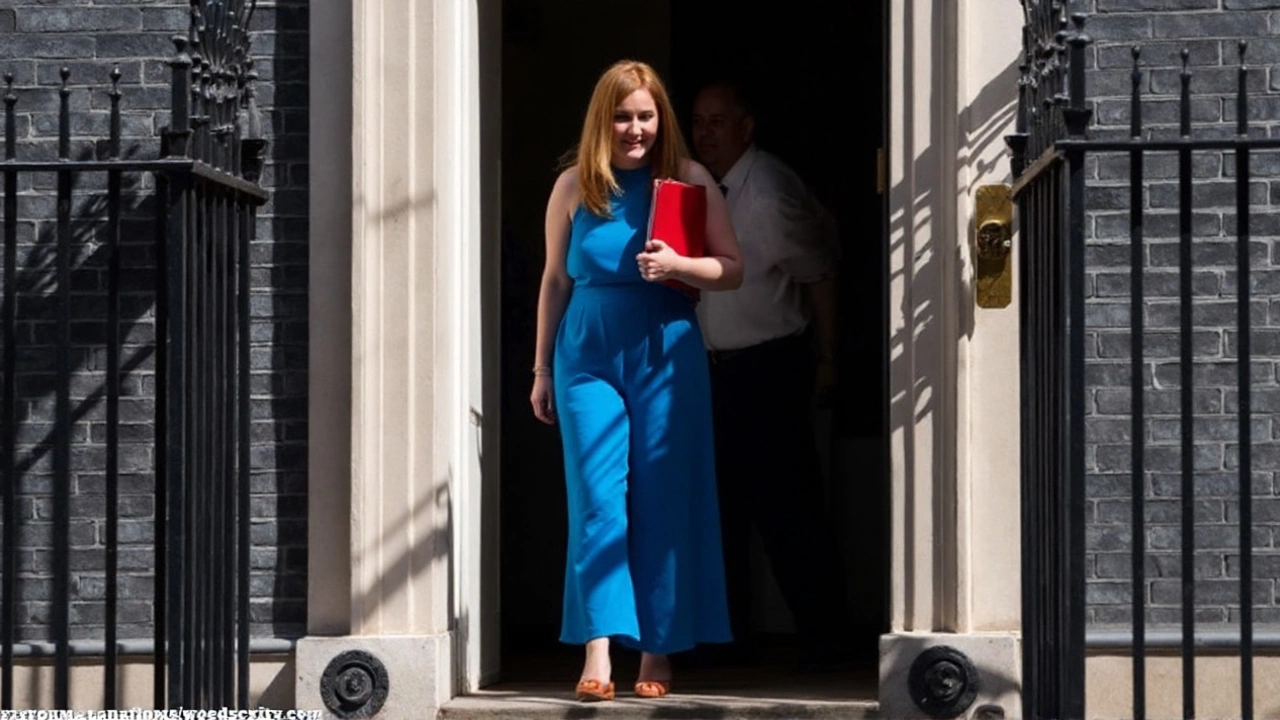
A resignation, an ethics ruling, and a scramble at the top
Keir Starmer’s government hit its first full-blown crisis on Friday, September 5, when Angela Rayner resigned as Deputy Prime Minister after the government’s ethics chief, Sir Laurie Magnus, concluded she had breached the ministerial code. The case centers on tax linked to the purchase of a flat in Hove, Sussex. Rayner acknowledged she had unintentionally underpaid, but the ruling left little room: ministers must meet both the spirit and letter of the rules.
Rayner’s exit is more than a personnel change. She has been the party’s loudest grassroots voice inside government, a bridge between Labour’s left and a leadership that prides itself on competence and caution. Her departure strips Starmer of a political counterweight who could reach union activists and the party’s traditional base while he sold technocratic discipline to voters.
Starmer moved fast. Within hours, he announced a sweeping reshuffle meant to project grip and continuity. David Lammy left the Foreign Office to become Deputy Prime Minister. Yvette Cooper shifted from the Interior Ministry (the Home Office) to run the Foreign Office. Shabana Mahmood, who had been Justice Secretary, stepped into Cooper’s old role at the Interior Ministry. The choreography was brisk, but speed can hide only so much. The government has lost a figure central to party balance, and the reshuffle exposes the thin ice beneath a year-old mandate.
The episode raises the same hard question that haunts every British government: how to enforce rules without looking chaotic when senior figures fall. A year on from a landslide win, Labour wanted to be talking about delivery—on living costs, NHS waiting lists, crime, and a strained immigration system. Instead, it’s dealing with standards, tax, and the ministerial code.
In recent years, breaches of the ministerial code have ended careers quickly. In 2023, the independent adviser found Nadhim Zahawi had broken the code over a tax penalty, and he was removed as Conservative Party chair. In 2017, Priti Patel resigned as International Development Secretary after unauthorized meetings. The pattern is familiar: when the adviser rules and pressure builds, a resignation often follows fast to avoid a longer bleed.
Rayner’s case carries a unique political sting. She embodies Labour’s story of social mobility: a former care worker and union organizer who rose to the top of national politics. She represents Ashton-under-Lyne, near Manchester, and has been a force at the microphone—direct, quick, and unafraid to clash with opponents. Her presence gave Labour’s left a stake in a government that otherwise leans to the center. Without her in the room, Starmer’s team must prove it can keep that coalition together.
The ethics piece matters on its own terms. The ministerial code sets out expectations on honesty, conflicts of interest, and the use of public resources. Breaches don’t always mean deliberate wrongdoing, but intent isn’t the only standard. Ministers are expected to meet high thresholds precisely because public trust is brittle. That’s why Sir Laurie Magnus’s conclusions carry weight; his findings can’t be brushed aside without political cost.
The timing is awkward. Early September is when parties gear up for conference season, where leaders firm up their story to voters and their own members. Labour would have liked to arrive with a clean message on growth and public services. Instead, it will face questions about vetting, internal management, and whether its own standards match the bar it demanded from its predecessors.
Starmer’s bet is that decisive moves now avert a longer crisis. But the reshuffle will ripple across policy. Foreign policy, home affairs, and the core of cabinet coordination all change hands in a single day. That’s a lot of churn for a government that wants to look steady.
- Angela Rayner resignation: Triggered by the ethics chief’s finding of a ministerial code breach linked to tax on a flat purchase in Hove. Rayner accepted she underpaid unintentionally but stepped down.
- David Lammy: Shifts from Foreign Secretary to Deputy Prime Minister. As DPM, he becomes Starmer’s chief political fixer in cabinet, corralling departments and messaging.
- Yvette Cooper: Moves from the Interior Ministry to the Foreign Office. A seasoned operator with security experience, she will now navigate alliances, Ukraine policy, China tensions, and trade diplomacy.
- Shabana Mahmood: Leaves Justice to lead the Interior Ministry. She inherits migration enforcement, policing, counter-extremism, and the delicate balance between border control and asylum rules.
There’s no guarantee these moves calm the waters. Lammy’s shift means foreign policy loses a familiar voice just as crises demand continuity. Cooper’s move to the Foreign Office is a promotion in diplomatic terms, but it leaves the Interior Ministry—always politically explosive—under fresh leadership. Mahmood is experienced, but the Home Office is where new ministers often find their plans crash into legal limits, backlogged systems, and headline pressure.
The political map adds another layer. Labour’s majority runs through ex-Conservative areas that wanted change without drama. Those seats care about competence first. A cabinet crisis can spook them if it hints at drift. At the same time, Labour can’t afford to alienate its base in urban strongholds, where Rayner’s plain-spoken style landed well. Losing her from the front rank sharpens the need for other ministers to keep ties with unions and grassroots activists warm.
Expect internal negotiations to intensify. Starmer will want a left-leaning voice in key delivery meetings and a visible champion on the conference stage. Without that, the left could feel sidelined at exactly the moment the government needs discipline for tough fiscal choices. Big spending pledges remain constrained by weak growth and public debt. The leadership’s approach—tight budgets paired with micro-reforms—requires patient politics, not internal sniping.
The ethical side will not vanish overnight. Details of the adviser’s findings will be pored over, line by line. How the government explains the tax shortfall—what was owed, when it was paid, what advice was taken—will determine whether this is a sharp shock or a slow-burn story. The government’s credibility on standards rests on visible transparency and consistency with how it treated opponents when they were in power.
Parliament’s rhythms may temporarily soften the blow. If lawmakers return with a packed agenda—housing supply, planning reform, NHS recovery—the noise can shift to policy. But any new stumble on standards will revive the controversy instantly. Fair or not, voters connect ethics and competence; one wobble makes the other suspect.
Profiles matter now:
- Lammy is a veteran communicator, known for punchy broadcast performances. As Deputy PM, he must swap outward-facing diplomacy for inward-facing management—less visibility, more grip. His success will be judged by how coherent the government sounds in the next month.
- Cooper is an institutionalist. At the Foreign Office, her careful style could reassure allies and the civil service. The test will be bandwidth: the Ukraine war, Middle East tensions, and trade rows don’t pause for reshuffles.
- Mahmood brings a lawyer’s precision. The Home Office needs it. But she will face immediate stress tests—small boat crossings, police resources, and contested surveillance powers. Every move will be watched for signals of toughness versus fairness.
Rayner’s own future remains open. A ministerial code breach ends a role, not a career. She remains a significant figure on Labour’s benches with a personal vote and a national profile. Whether she chooses a period of quiet constituency work or returns quickly to front-line politics will shape how the left organizes itself inside the party.
There’s a broader lesson here about modern British government. Scandals rarely come from grand corruption; they come from blurred lines—tax, declarations, meetings, process. The ministerial code sits at those junctions. When it bites, politics becomes a story about rules, not reforms. The only way out is to reset, show process discipline, and then get back to delivery.

What to watch in the weeks ahead
- Transparency: Will the government release enough detail from the ethics ruling and tax correspondence to draw a line under the case?
- Conference mood: Does Labour’s autumn gathering look united, with clear economic and public service priorities, or do factional arguments spill onto the stage?
- Message discipline: Can Lammy, Cooper, and Mahmood move in sync and keep the government’s voice consistent across foreign policy, security, and domestic delivery?
- Polling in marginal seats: Do approval ratings in newly-won constituencies hold steady, or do voters register nerves about standards and stability?
- Legislative tempo: Does the government keep bills moving—on housing, planning, NHS reform—or does internal bandwidth shrink under the weight of the reshuffle?
Starmer’s team wanted year two to be the quiet year of competent delivery. Instead, it begins with a loud stress test. The next month will tell whether the speed of the reshuffle was a sign of control—or a sign that control is the very thing they’re trying to regain.


